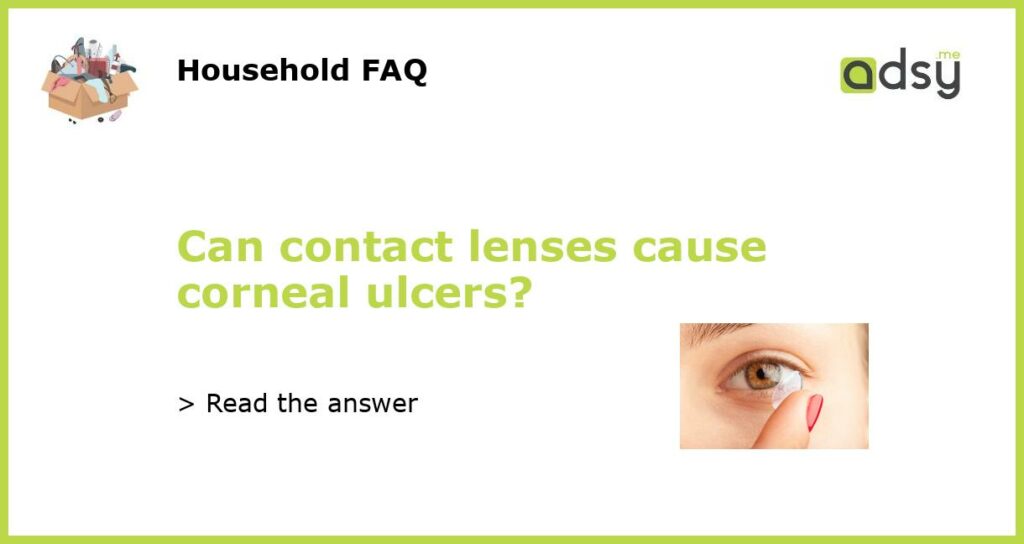Can contact lenses cause corneal ulcers?
Corneal ulcers are a serious eye condition that can cause discomfort, pain, and potential vision loss if left untreated. While contact lenses are generally safe when used correctly, improper care and usage can increase the risk of developing corneal ulcers. In this article, we will explore the relationship between contact lenses and corneal ulcers and discuss ways to prevent this condition.
Understanding corneal ulcers
Corneal ulcers are open sores on the cornea, the clear outer layer of the eye. They can be caused by various factors, including bacterial or fungal infections, physical trauma, or underlying diseases such as dry eye syndrome. Corneal ulcers can lead to symptoms such as eye redness, pain, sensitivity to light, blurred vision, and discharge from the eye.
Risks associated with contact lens use
Wearing contact lenses increases the risk of developing corneal ulcers due to several reasons:
- Prolonged lens wear: Extended use of contact lenses without giving the eyes a break can lead to reduced oxygen flow to the cornea, making it more susceptible to infections.
- Poor hygiene: Not properly cleaning and disinfecting contact lenses, or using contaminated lens solutions, can introduce harmful bacteria or fungi to the eyes.
- Improper lens storage: Storing contact lenses in unclean cases or reusing old solution can also contribute to the growth of microorganisms on the lenses and increase the risk of corneal ulcers.
Preventing corneal ulcers while wearing contact lenses
To reduce the risk of developing corneal ulcers while wearing contact lenses, it is essential to follow these preventive measures:
- Proper hygiene: Always wash your hands thoroughly with soap and water before handling contact lenses. Clean and disinfect your lenses as instructed by your eye care professional.
- Regular replacement: Replace your contact lenses as recommended by your eye care professional. Avoid wearing them beyond their intended lifespan.
- Appropriate lens storage: Use clean, sterile lens cases and replace them regularly. Do not reuse old lens solution, and make sure to follow the recommended guidelines for storing your lenses.
- Opt for breathable lenses: Consider using silicone hydrogel lenses that allow more oxygen to pass through to the cornea, reducing the risk of hypoxia-related complications.
- Educate yourself: Learn about proper contact lens care and maintenance from your eye care professional. Stay informed about the latest guidelines and recommendations for safe contact lens use.
When to seek medical attention
If you experience any symptoms of a corneal ulcer, it is crucial to seek immediate medical attention. Prompt diagnosis and treatment are essential to prevent complications and minimize the risk of vision loss. Your eye care professional will perform a thorough examination and prescribe appropriate medication, such as antibiotics or antifungal agents, to treat the underlying infection.






